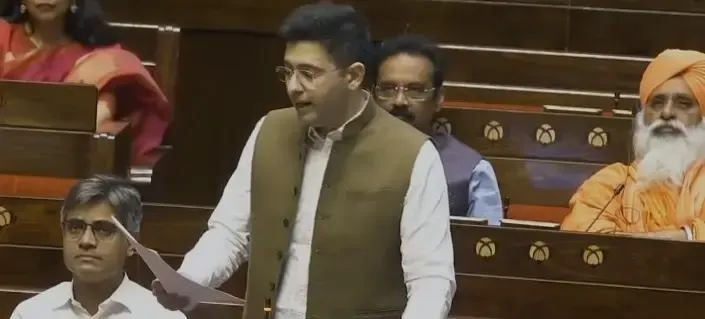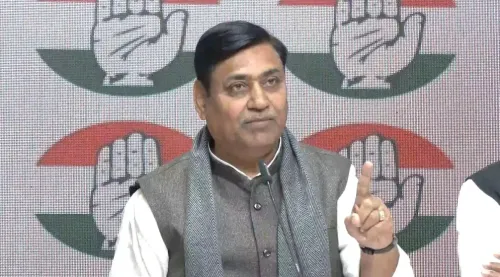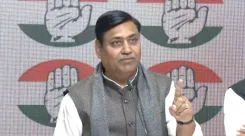Raghav Chadha Advocates for Judicial Reforms to Boost Public Trust

Synopsis
Key Takeaways
- Judicial reforms are essential for restoring public trust.
- The judiciary is viewed as a temple of justice in India.
- Need for transparency in judicial appointments.
- Proposed a point-based evaluation system for judges.
- Addressed conflicts of interest in government roles for retired judges.
New Delhi, April 1 (NationPress) Expressing alarm over the recent occurrences within the judiciary, Member of Parliament Raghav Chadha on Tuesday called upon the government to enact judicial reforms that would fortify the legal system and enhance public trust.
During his speech in the Rajya Sabha, Chadha underscored that the citizens of India perceive the judiciary as a “temple of justice,” believing that it will uphold equity and dispense justice.
He remarked, “Just as divine justice may be delayed but never denied, the same belief applies to our judiciary -- justice may take time, but injustice must not prevail.”
While he recognised that the judiciary has historically nurtured public trust, he warned that recent incidents have sparked concerns that demand immediate reforms.
Chadha contended that just as reforms have enhanced elections, policing, education, and healthcare, corresponding improvements are crucial for the judiciary. “Reforms should aim to strengthen the judiciary, not weaken it,” he emphasised.
He pointed out ongoing critiques of the collegium system, noting that various Law Commission reports and legal experts have highlighted its lack of transparency. He recalled the earlier initiative for the National Judicial Appointments Commission (NJAC) and stressed the necessity for self-reform within the collegium.
“The collegium system has been criticised for its lack of transparency and public oversight. To address these shortcomings, an independent and transparent selection process should be established, ensuring that judicial appointments are based on seniority, merit, and integrity,” he remarked.
Chadha recommended the adoption of a structured, point-based evaluation for judicial appointments, similar to the method used to designate senior advocates. The Supreme Court has implemented a structured assessment for senior advocate appointments, awarding points for years of practice, pro bono work, and reported judgments.
Chadha asserted that a similar transparent, merit-based system for judicial appointments would boost public confidence.
He also voiced concerns regarding the appointment of retired judges to administrative or executive positions within the government. He argued that such appointments give rise to conflicts of interest, permitting executive influence over judicial decisions and compromising judicial independence.
Referencing Article 148 of the Constitution, which bars the Comptroller and Auditor General (CAG) from accepting government roles post-retirement, Chadha suggested a comparable restriction for judges. If a complete prohibition is not possible, he proposed imposing a mandatory two-year cooling-off period before retired judges can accept government positions.
Chadha concluded by asserting that these reforms would represent a historic milestone in India's judicial system. “The people of this country view courts as temples of justice and judges as embodiments of fairness. Implementing these reforms will further deepen public trust in the judiciary,” he declared.










